Films with theme "Documentary films about religion", sorted by name
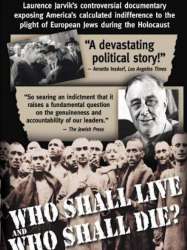 , 1h30
, 1h30Origin USA
Genres Documentary
Themes Films about racism, Films about religion, Documentary films about racism, Documentary films about law, Documentary films about war, Documentary films about historical events, Documentaire sur une personnalité, Documentary films about politics, Documentary films about religion, Political films, Films about Jews and Judaism, Documentary films about World War II

Wiebo's War (2012)
, 1h33Origin Canada
Genres Documentary
Themes Environmental films, Films about families, Films about religion, Films about terrorism, Documentary films about law, Documentary films about environmental issues, Documentary films about war, Documentary films about historical events, Documentaire sur une personnalité, Documentary films about politics, Documentary films about religion, Documentary films about technology, Documentary films about terrorism, Political films
 , 1h25
, 1h25Directed by Yolande Zauberman
Origin France
Genres Documentary
Themes Films set in Africa, Films about religion, Films about sexuality, Documentary films about law, Documentary films about war, Documentary films about historical events, Documentaire sur une personnalité, Documentary films about politics, Documentary films about religion, Political films, Films about Jews and Judaism
Actors Juliano Mer-Khamis
Dans les bars de Tel Aviv, la nuit, la réalisatrice demande à des jeunes Juifs s'ils auraient des relations sexuelles avec des Arabes, et à des jeunes Arabes s'ils feraient l'amour avec des Juifs. Chacun donne son avis, avec plus ou moins d'explications, sur le symbole que cela peut représenter pour eux (beaucoup l'ont déjà fait) ou au contraire leur refus. Des jeunes issus de familles mixtes (un parent juif, l'autre arabe) sont également interviewés. Le film recueille aussi les témoignages du journaliste Gideon Levy et de l'acteur Juliano Mer-Khamis, de mère juive et de père arabe, assassiné en 2011 par des Palestiniens à Jénine.
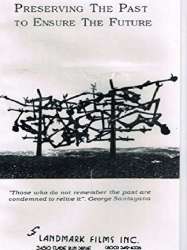
Origin USA
Genres Documentary
Themes Films about racism, Films about religion, Documentary films about racism, Documentary films about law, Documentary films about war, Documentary films about historical events, Documentaire sur une personnalité, Documentary films about religion, Political films, Films about Jews and Judaism, Documentary films about World War II
 , 1h14
, 1h14Directed by Paul Mazursky
Origin USA
Genres Documentary
Themes Films about religion, Documentary films about religion, Films about Jews and Judaism
Actors Paul Mazursky
The documentary film follows filmmaker Mazursky as he goes to Ukraine for a festival for Hasidic Jews.
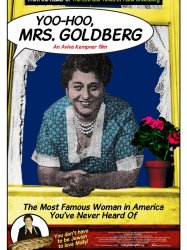
Yoo-Hoo, Mrs. Goldberg (2009)
Directed by Aviva Kempner
Genres Documentary
Themes Films about religion, Documentaire sur une personnalité, Documentary films about religion, Political films, Films about Jews and Judaism
Actors Gertrude Berg, Viola Harris, Norman Lear
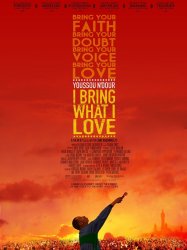
Genres Documentary
Themes Films about music and musicians, Films about religion, Documentary films about music and musicians, Documentary films about religion, Films about Islam
Actors Peter Gabriel
Youssou N’Dour: I Bring What I Love is a music-driven film that reveals one man's power to inspire global change. The film unfolds at a pivotal moment in the life of Youssou N’Dour—the best-selling African pop artist of all time. N'Dour has long been renowned for bringing people of diverse nations and backgrounds together through his collaborations with such musical superstars as Bono, Paul Simon, and Peter Gabriel. But when he releases his most personal and spiritual album yet, he instead alienates his Muslim fans in Africa. Although he garners accolades in the West, N’Dour must brave controversy and rejection at home as he sets out to win his audience back.
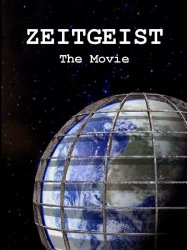
Zeitgeist (2007)
, 2h2Directed by Peter Joseph
Origin USA
Genres War, Documentary, Historical
Themes Films based on the September 11 attacks, La mondialisation, Films about religion, Films about terrorism, Transport films, Aviation films, Documentaire sur l'altermondialisme, Documentary films about law, Documentary films about war, Documentary films about historical events, Documentary films about politics, Documentary films about religion, Documentary films about technology, Documentary films about terrorism, Political films, Films based on the Bible, Films about Islam, Dans un avion, Portrayals of Jesus in film, Films about hijackings
Actors George Carlin
The film starts with animated visualizations, film segments and stock footage, a cartoon and audio quotes about spirituality by Chögyam Trungpa Rinpoche, then shots of war, explosions, and the September 11 attacks. Then the film's title screen is given. The introduction ends with a portion of a George Carlin monologue on religion accompanied by an animated cartoon. The rest of the film is in three parts with narration by Peter Joseph.
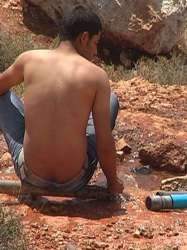
Interrupted Streams (2010)
, 1h15Origin Israel
Genres Documentary
Themes Films set in Africa, Environmental films, Films about religion, Documentary films about law, Documentary films about environmental issues, Documentary films about war, Documentary films about historical events, Documentaire sur une personnalité, Documentary films about politics, Documentary films about religion, Political films, Films about Jews and Judaism
Paths of lives are crossed in one village in the West Bank. Along the broken water pipelines, villagers walk on their courses towards an indefinite future. Israel that controls the water, supplies only a small amount of water, and when the water streams are not certain nothing can evolve. The control over the water pressure not only dominates every aspect of life but also dominates the spirit. Bil-in, without spring water, is one of the first villages of the West Bank where a modern water infrastructure was set up. Many villagers took it as a sign of progress, others as a source of bitterness. The pipe-water was used to influence the people so they would co-operate with Israel’s intelligence. The rip tore down the village. Returning to the ancient technique of collecting rainwater-using pits could be the villagers’ way to express independence but the relations between people will doubtfully be healed.
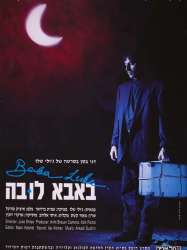
Baba Lubba (1995)
, 1hOrigin Israel
Genres Documentary
Themes Films about music and musicians, Films about religion, Documentary films about music and musicians, Documentaire sur une personnalité, Documentary films about religion, Musical films, Films about Jews and Judaism
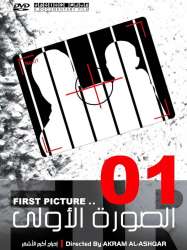
First Picture (2007)
, 27minutesGenres Documentary
Themes Films set in Africa, Films about religion, Documentary films about law, Documentary films about war, Documentary films about historical events, Documentaire sur une personnalité, Documentary films about politics, Documentary films about religion, Political films, Films about Jews and Judaism
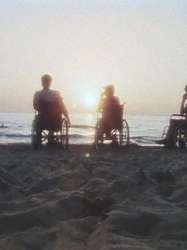
The Dream (1987)
, 45minutesDirected by Mohamed Malas
Genres Documentary
Themes Films set in Africa, Films about immigration, Films about religion, Documentary films about law, Documentary films about war, Documentary films about historical events, Documentaire sur une personnalité, Documentary films about religion, Political films, Films about Jews and Judaism
The film was composed of several interviews with different Palestinian refugees including children, women, old people, and militants from the refugee camps in Lebanon. In the interviews Malas questions his subjects about their dreams at night. Through their answers, the film attempts to reveal the underlying subconsciousness of the Palestinian refugee. The dreams always converge on Palestine; a woman recounts her dreams about winning the war; a fedai of bombardment and martyrdom; and one man tells of a dream where he meets and is ignored by Gulf emirs. According to Rebecca Porteous, the film constructs "the psychology of dispossession; the daily reality behind those slogans of nationhood, freedom, land and resistance, for people who have lost all of these things, except their recourse to the last.

God of the Mountain (1992)
, 52minutesDirected by Alon Bar
Origin Israel
Genres Documentary
Themes Films about religion, Documentary films about religion, Films about Jews and Judaism
Actors Niu Ben

Strawberry Fields (2006)
, 1hOrigin Israel
Genres Drama, Documentary, Fantasy
Themes Films set in Africa, Environmental films, Films about religion, Documentary films about business, Documentary films about law, Documentary films about environmental issues, Documentary films about war, Documentary films about historical events, Documentaire sur une personnalité, Documentary films about politics, Documentary films about religion, Political films, Films about Jews and Judaism
Actors Mitsuki Tanimura, Yuria Haga
Strawberry Fields points out that strawberries grown in Gaza are the only agricultural product marketed internationally as being of Palestinian origin. One of the major Gaza strawberry farms in located at Beit Lahiya. More than 1,500 tons of strawberries are exported from Gaza to Europe through the Israeli company Agrexco. In order to get overseas, however, the fruits need to pass through the checkpoint that separates Israel and Gaza. The 2005–2006 growing season coincided with the Israel's disengagement from Gaza and the rise of Hamas as the ruling political entity. The armed conflict between Israel and Hamas resulted in the closing of the border checkpoint. The strawberries grown at Beit Lahiya cannot leave Gaza, resulting in significant losses for the farmers and their Agrexco partners. Unable to transport their produce, the farmers have no choice but to dispose of their crop and prepare for the following year’s growing season.
 Connection
Connection